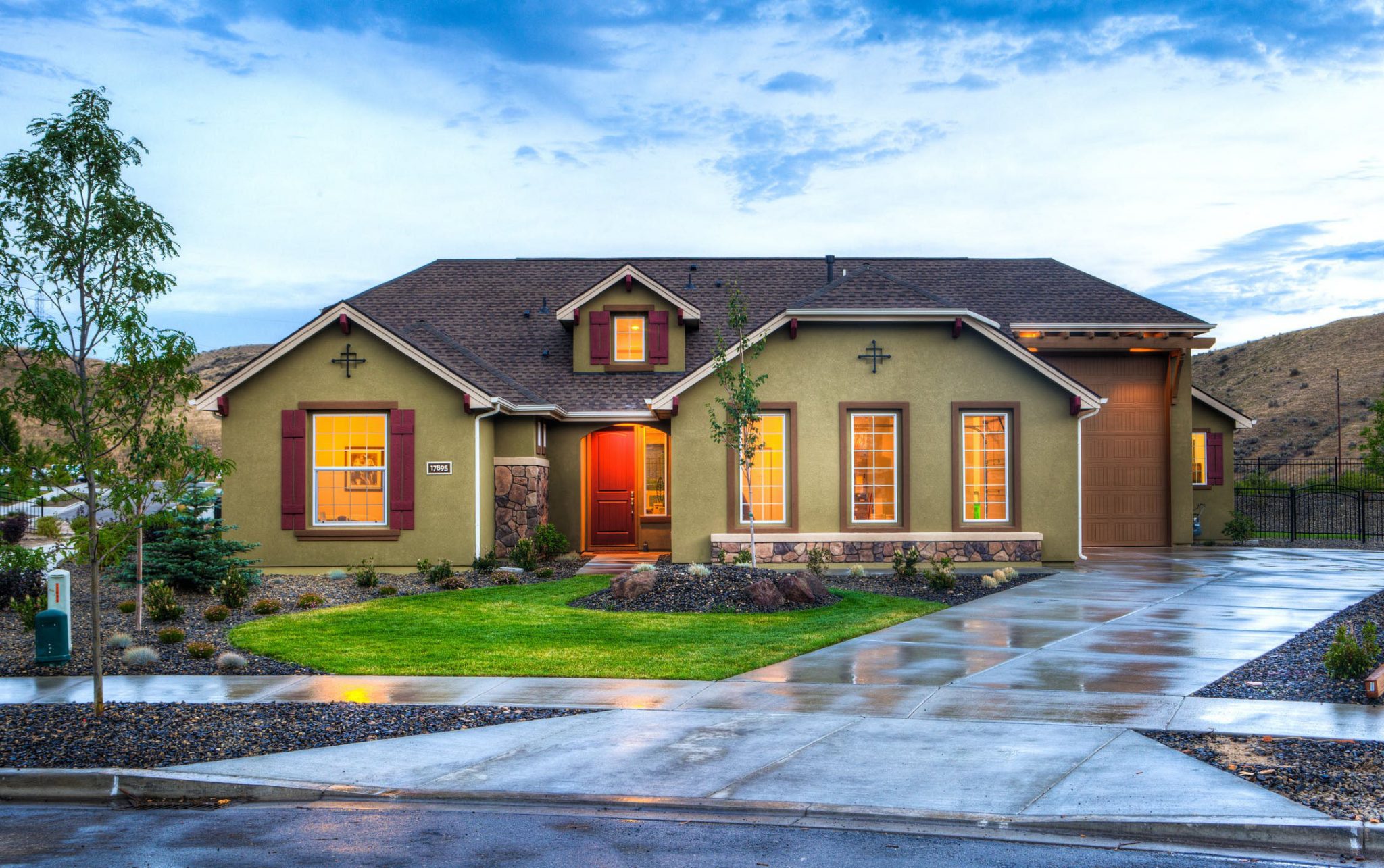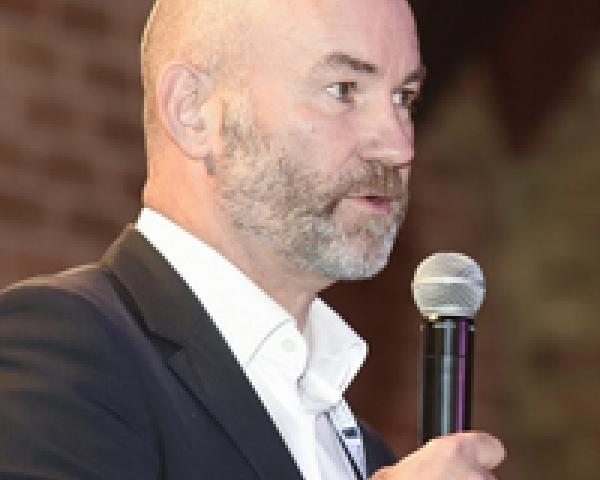Roughly a third of the population of South Africa live in informal dwellings in settlements and rural villages. Many of these are shacks, costing less than 5,000 rand to build. That's the equivalent of around 300 euros. These homes may not figure on a land registry or have a certificate of building quality, but they are family homes nonetheless, providing an essential roof over heads and a safe place to store everything the family owns.
This situation occurs across many parts of the developing world. According to the United Nations, over 1 billion people live in informal settlements around the globe. For the people living, working and raising their families in these conditions, insurance protection is out of the question. Until now.
Enter Ntando Kubheka, an entrepreneur with a passion to make a difference in the world. Ntando is the CEO and founder of Sugar, a start-up insurer in South Africa, who is on a mission to make home insurance accessible to those who need it the most.
To find out more about this young and ambitious start-up called Sugar, I Zoomed with Ntando.
What is the problem Sugar is addressing?
Ntando told me, "The problem we are solving, quite simply, is the provision of insurance protection for the mass market. This is the bottom of the pyramid when it comes to demographics. Our focus is on home insurance because the traditional insurers don't want to insure homes that are in informal settlements, in rural villages or are homes in township areas."
The point here is that this sizeable chunk of the world's population needs a financial safety net more than most. If their home goes up in flames, then everything they possess goes with it. With no stash of cash to fall back on, they become totally dependent on the good will of nongovernment organizations (NGOs), the community and the church.
And it's not just a question of money alone, although, by definition, this is a low-income group. There is also an issue of supply. The insurance products to fit these types of homes are simply not there.
So, how is it that Ntando can do what the traditional insurers won't?
Redefining a home
Ntando explained,"There are three issues we have had to deal with for our home insurance products on Sugar. The first is that there are no formal addresses to identify a home. The second is that, even if it is a bricks and mortar building, it won’t be built by a registered builder who has a license with a national agency. And, finally, there will be no formal documentation, such as a certificate of occupancy from the local authority, or building regulations or a land registry record. These are informal dwellings that people have built where they want to build them."
When you think of it like that, it is blindingly obvious why a traditional insurance product would fall at the first hurdle. There's no record of where the house is, how it's been made, what it's been made of and to what standard it has been built. The issue for insurers is, how do they assess risk when there is no address, or standard description of how the home is built or any certification to demonstrate the quality of the construction?
This is why the purpose of Sugar is to build an insurance product for people who live in homes like these.
Technology to the rescue!
It was about now in the conversation with Ntando that I had one of those aha moments. It came when I asked him how you find anyone when the person is living without a street address. I was thinking of the trouble I have with couriers and the "I can’t find your house" call I seem to get with every delivery. Which is particularly challenging for me as I live in southern Spain but speak un poco de español!
It had never occurred to me how you find someone when there isn't a system of road names and numbers to rely on.
The answer is simple: The person sends you a WhatsApp locator! The perfect fusion of the analog and digital worlds.
But it gets better: Sugar has built a platform using proprietary technology similar to What3Words to provide a location point for every dwelling. For those unfamiliar with What3Words, it is a global addressing system that does not use street names or GPS locations.
Instead, What3Words has divided the entire planet into a grid of 57 trillion squares that measure three meters by three meters. Each square is given a unique combination of three words to identify it. This system provides greater accuracy for identifying locations and is remarkably easy to use. Words are easier to remember than a GPS location; it always works offline; and it is more precise than saying, "Meet me outside Oxford Street tube station!"
How is Sugar doing it?
Sugar scans and remaps the country every six months with its in-house spatial platform to keep the core platform up to date. Sugar can put a pin in the map and locate every one of its customers.
Customer onboarding is entirely automated and driven by a conversational, AI-enabled chatbot. It typically takes 10 minutes for a new customer to go through the entire process of inquiry, quotation and buying a policy. The experience is specifically designed to be conversational in a choice of 11 languages (not everyone speaks some English).
As part of the onboarding process, customers take photos of the four elevations of their dwelling. Sugar takes the four images and strips out the metadata of each one, such as the location data, timestamps, etc. Sugar then compares the images with its own datasets to validate the photos against what it already knows about the dwelling.
Which all sounds great, but what about valuation and the setting of the premium? Ntando explained, "When it comes to valuing the property, we leave that to the customer. We ask them to assign the value that they think is sufficient to cover the rebuild cost of the property and the value of its contents. If they over- or underestimate, well, it is what it is. They make that choice for themselves."
See also: 11 Insurtech Predictions for 2021
Insurance claims - the moment of truth
"When it comes to settling claims," Ntando said, "we send out an assessor for bricks and mortar property claims to view the damage and assess the loss. But for the Shack product, we pay out the full amount on every claim. We deliberately made this a pre-paid product for a fixed amount, say 5,000 or 10,000 rand. This is unique in our marketplace to have an insurance product like this."
One of the smart moves Ntando has made with Sugar to minimize the risk of fraudulent claims is to enter into a series of partnerships with retailers and do-it-yourself (DIY) stores. When a claim is paid, it is usually in the form of vouchers or a pre-paid card to spend at a store, and not in cash. This discourages anyone from seeing an easy route to cashing in their total loss policy when they know they'll be paid out in timber and nails!
Bringing insurance to the masses
Sugar is about to complete its first round of seed funding. The tech platform is built and already serving customers. The underwriting capacity is in place with Genric Insurance, backed up with reinsurance from GenRe.
This newly raised capital will fund growth in distribution as Ntando goes on his mission of educating the people of South Africa on the value of insurance to people who have little or nothing to fall back on.
Social impact!
Afterward, when the Zoom was over and I was reflecting on the call with Ntando from the safety and comfort of my riverside dwelling, I had one overwhelming thought. The social impact of providing financial protection to those who need it the most makes Sugar more than just an insurance company.
And for that, I wish Ntando and Sugar the very best of luck and good fortune for the future!








